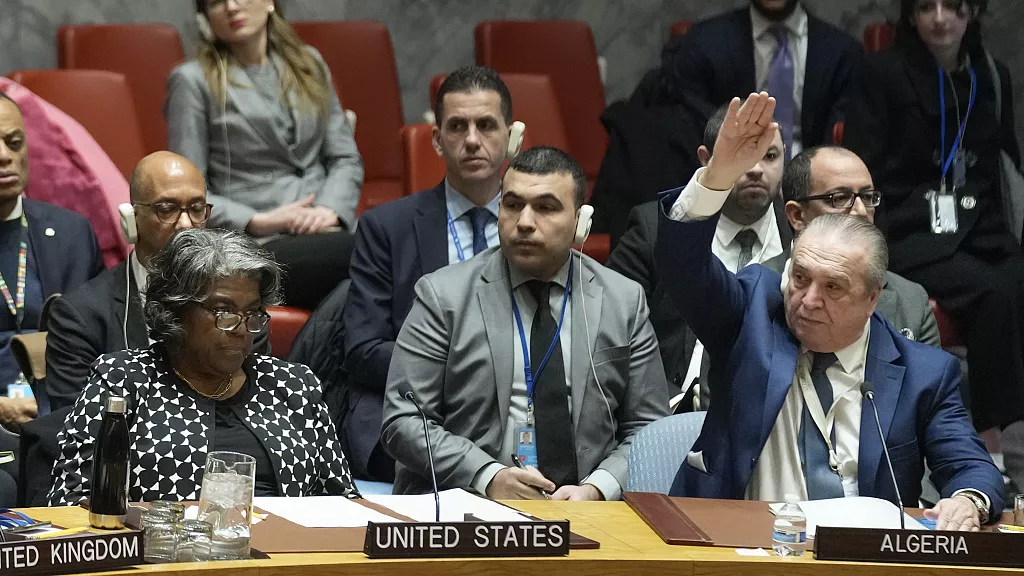Algerian Call for Gaza Ceasefire Stalled as US Issues Third Veto
The United States exercised its veto power on Tuesday, rejecting a U.N. resolution backed by Arab nations that called for an immediate humanitarian cease-fire in the ongoing Gaza war. The Security Council vote ended with 13 in favor, one abstention from the United Kingdom, and the U.S. casting the sole dissenting vote. This marks the third U.S. veto of a cease-fire resolution related to the conflict between Israel and Palestine.
The veto came a day after the U.S. proposed an alternative resolution, linking a temporary cease-fire to the release of all hostages. The proposed U.S. resolution aimed to pressure Hamas to accept the existing hostage deal and facilitate a pause in the fighting for at least six weeks, allowing time for more substantial peace negotiations.
The situation in Gaza’s southern city of Rafah, where 1.5 million Palestinians sought refuge, raised concerns among Security Council members. The potential evacuation of civilians and a military offensive by Israel in the area near Egypt intensified worries about a humanitarian catastrophe.
Algeria’s U.N. Ambassador, Amar Bendjama, emphasized that supporting the proposed resolution was endorsing the Palestinians’ right to life, while the U.S. Ambassador, Linda Thomas-Greenfield, argued that the resolution could negatively impact ongoing negotiations.
Israel’s Ambassador to the U.N., Gilad Erdan, rejected the idea that a cease-fire would solve regional problems, warning that it could enable Hamas to rearm and regroup for future attacks.
Palestinian Ambassador Riyad Mansour criticized the U.S. veto, stating that it sends a message allowing Israel to continue with its actions. He warned of dire consequences, including more casualties, hunger, displacement, and a lack of essential resources for Gaza’s population.
The Arab-backed resolution, demanding an immediate humanitarian cease-fire and supported by many nations, may now be taken to the U.N. General Assembly, where approval is likely. Unlike Security Council resolutions, those from the General Assembly are not legally binding.
The contrasting U.S. draft resolution supports a temporary cease-fire linked to hostage release and calls for unhindered humanitarian assistance. It also reiterates a commitment to a two-state solution, aligning with President Biden’s stance and differing from Israeli Prime Minister Netanyahu’s position.



















